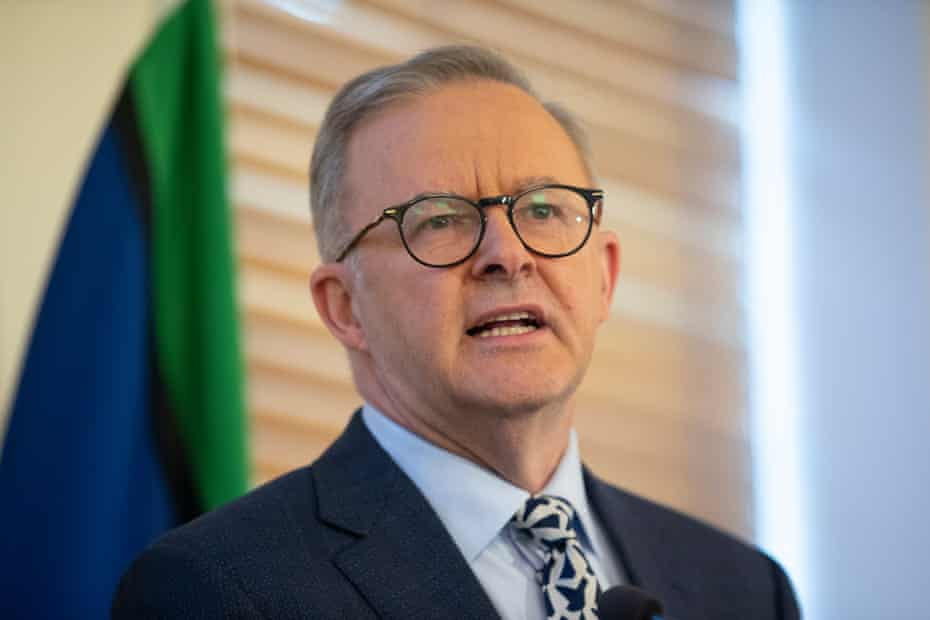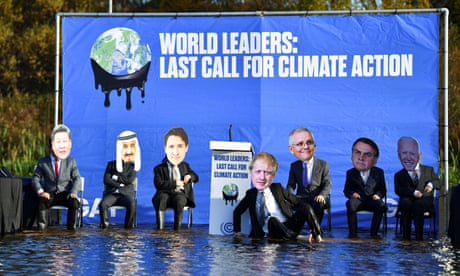Extract from The Guardian

‘Prime minister Anthony Albanese has delivered strong messages about a new approach on climate, not just to Australians but also when he attended a major security meeting in Tokyo within days of the election.’
The climate inaction of the Morrison government attracted high profile criticism from governments such Fiji, the United Kingdom, the United States, and indeed the UN secretary general – along with many international commentators and scientists.
So why all the international interest?
Australia is well recognised as punching above its weight internationally, and for being a positive force on a wide range of issues. Unfortunately, the ridicule and opprobrium the Morrison government brought upon the country has damaged that standing, but there is great appetite to see Australia back in the game and on the right side of history.
In the halls of the climate negotiations, the Morrison government was, well, awful.

At Cop25 in Madrid Australia did its best to browbeat the world into allowing it to carry over 40-year-old emissions credits to count towards its 2030 target, and was publicly accused of cheating and thwarting global agreement on the Paris agreement rules.
Cop26 in Glasgow last year saw then energy minister Angus Taylor performing a public relations stint with gas giant Santos. That was after Scott Morrison attempted to convince world leaders that not improving his 2030 target and announcing he’d just skip to net zero without a plan was a good thing. The emperor’s lack of clothes was abundantly clear to all – indeed UN secretary general António Guterres called Australia a “holdout” in response.
Prime minister Anthony Albanese has delivered strong messages about a new approach on climate, not just to Australians, but also when he attended a major security meeting in Tokyo within days of the election.
His new foreign minister, Penny Wong, is visiting our Pacific neighbours, putting climate change at the centre of her new Pacific diplomacy. For many of us climate veterans, her warm, open embrace and support for our mates in the Pacific brought tears of relief.
The symbolism and the power of this positioning is important and should not be underestimated, but symbolism will need to be matched with facts on the ground – and this what the international community will be looking for.
The government needs a new global climate strategy, away from the devotion to feeding demand for our fossil fuels
What can Australia under a new government bring to the global efforts to limit warming to 1.5C?
Perhaps its first test will be over these next two weeks in Bonn, as governments gather in their first global discussions under the UN Framework Convention on Climate Change since Glasgow. All eyes will be on what Albanese’s government will do, and say. Who will he send? How will they act?
Australia has become a poster child for climate impacts: a rich country suffering major and highly visible effects. One of its greatest national treasures, the Great Barrier Reef, is now under the gun from climate change.
We must lead by example.
The new government’s promise is to reduce emissions by 43% from 2005 levels by 2030, a very substantial improvement on the 26-28% target of the ousted Morrison government, a change energy minister Chris Bowen is quick to point out.
But it does not quite stack up to the reductions needed to put Australia on a 1.5C pathway, and still lags behind the climate targets of the US, the European Union and the UK when measured against a 2005 base-year of emissions.
The UN secretary general is convening a summit on 2030 climate ambition at the end of 2023, and by that time the Labor government could be well positioned to significantly increase its 2030 action and target.
So when Australia announces its new 2030 target of 43%, it should state this is a “minimum” target, and signal its intent to task its agencies to evaluate the potential for deeper action.
A critical issue is the level of support Australia provides to developing countries to reduce greenhouse gas emissions, and to finance their adaptation to the inevitable effects of climate change. The Morrison government withdrew Australia from the Green Climate Fund, a key international instrument to channel resources into developing countries.
The government can quickly reverse this, rejoin the GCF and assist with the replenishment of its capital. This would be very well-received in the Pacific and beyond. Climate finance will be a key issue at the November UNFCCC climate summit in Egypt, and with Australia in a better position and hopefully leading, better outcomes will be possible.
Of course, the elephants in the room are Australia’s fossil fuel exports: liquefied natural gas and coal as well as oil products. We are a major exporter of fossil fuels, and while our domestic emissions are less than 2% of global greenhouse gas emissions, our total global footprint is of the order of 4-5%.
I’d have hoped the question on whether the Taylor-Santos antics are repeated on the global stage would have been moot, but unfortunately the jury is out after newly sworn-in resources minister Madeleine King immediately reassured the gas industry it was part of the transition to net zero and its expansions plans were guaranteed.
Australia is a geopolitically important player in the energy system: our domestic policies and politics affects and feeds demand in other parts of the world.
The government needs to develop a new
global diplomatic climate strategy, away from the devotion to feeding
demand for our fossil fuels – one that works with others to change the
geopolitics of energy and quickly promote the development of Paris
agreement-aligned markets for renewable hydrogen, renewable ammonia,
green steel.
Australia is well placed to pull this off.
We have our own entrepreneurs in this space who have the energy, drive and capital to strongly initiate this. Just as Australia is working to fundamentally repair its relationship with the Pacific on ambitious climate policy, its success will depend on our ability to transition away from our present dependence on fossil fuel to a green and renewable future.
The Albanese government has a massive opportunity now to look at real transformation and change. The electorate has clearly shown great appetite for this, including in previously safe conservative seats that have changed hands essentially around the climate crisis, and the detailed numbers across the country show that this trend is set to continue.
The world is watching.
No comments:
Post a Comment